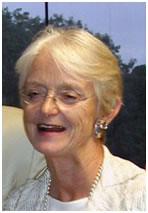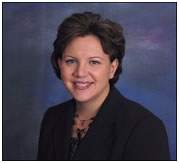speakers & sessions | fees | exhibitors | flyer
LIGHT UP YOUR LOBES –
ANNUAL CONFERENCE
March 2 and 3, 2012SPEAKERS AND SESSIONS
Jane Holmes Bernstein, Ph.D.
Dr. Bernstein is a Developmental Neuropsychologist and Associate Professor of Psychology at Children’s Hospital Boston. She has had 30+ years of clinical and teaching practice in tertiary care children’s hospital, providing comprehensive assessment and consultation around neurobehavioral outcomes of neurological, neurodevelopmental and behavioral disorders. She has trained multiple generations of neuropsychologists in clinical evaluation and management of children. Education is from University of Edinburgh (1973) and University of Durham (1968).
SESSION: Brains Don’t Work in a Vacuum:
Developmental Neurosciences, Learning & Teaching with Focus on Strategies for Teachers & Parents
This session will help you to understand the importance of brain-context interactions. As children develop, what is learned and how it is to be taught must change with them. Understanding this will help you as you teach children with learning problems. We will show you how developmental change results in brain capacity of school-age learners. The acquisition of reading skills will be used to illustrate the principles of neurodevelopment that teachers can use to shape their instructional practices. You’ll learn how to apply the principles of developmental neuroscience to your own teaching methods.
The developmental neurosciences have revealed the critical interdependence of brain and context for the development of the brain itself and for all the behavior it supports. Learning throughout life is based on the interactions between brain and experience in the world. As children develop, the relationships between brain and context change – and the analysis both of what-is-to-be-learned and of how it is to be taught must change with them. For children, teachers are a critical part of the brain-context interaction and its change over development. The acquisition of the reading skill from birth to the high school grades will be used to illustrate the principles of neurodevelopment that teachers can use to shape their instructional practices.Educational Objectives – Participants will:
- Appreciate the nature and importance of brain-context interactions in understanding how children learn
- Appreciate how developmental change in brain capacity is reflected in learning over the school years
- Apply principles of developmental neuroscience to teaching practice
SESSION: Nonverbal Learning Disabilities: One or Many?
In this session, Dr. Bernstein will inform you about the history and nature of Nonverbal Learning Disorders, (NVLD) so you can better understand the controversy and its popularity in educational settings. We’ll explore alternative diagnostic strategies to better understand children who show signs of NVLD. She will provide practical useful information for us. The discussion will address the history and nature of the construct. Participants will be invited to consider why it continues to be used if it is so limited. Dr. Bernstein will present practice—based evidence for revising Myklebust’s original formulation and reframing the whole concept of “nonverbal learning disorders” as the basis for better diagnosis and intervention.
Educational Objectives – Participants will:
- Understand the nature of the controversy surrounding the NVLD construct
- Analyze the reasons for the popularity of the construct in the educational setting
- Explore alternative diagnostic strategies for understanding children who present with problems in processing nonverbal information
Cheryl Chase-Carmichael, Ph.D.
www.cccphd.netCheryl Chase-Carmichael, Ph.D. is a licensed clinical psychologist in private practice near Cleveland, Ohio. She specializes in the diagnostic and neuropsychological assessment of various conditions impacting children, adolescents, and young adults including ADHD, Pervasive Developmental Disorders, Learning Disorders, and emotional concerns. In addition to her clinical practice, Dr. Chase-Carmichael is also an accomplished speaker at the local and national levels, leading workshops on such timely topics as executive functioning, differentiated instruction, and creative ways to support those who struggle in school. She also makes frequent appearances on area television news programs, addressing various topics that are of interest to the general public. Dr. Chase-Carmichael is also an accomplished writer, and has co-authored a chapter titled Assessment of Children with Chronic Illness in the book titled Psychological and Developmental Assessment (Guilford, 2001). Finally, Dr. Chase-Carmichael serves as an adjunct instructor at several area colleges. She is an active member of the International Dyslexia Association, CHADD (Children and Adults with ADD), and the American Psychological Association. In her spare time, Dr. Chase-Carmichael enjoys spending time with her family on and around Lake Erie and playing tennis.
SESSION: Executive Functions:
What are they, why are they important, and how can I help?
Abstract:
“Executive functions” is a term used to describe a broad set of cognitive skills that, when working properly, allow students to manage impulses, work in a deliberate and thoughtful manner, and organize their time and materials. When development of these skills is delayed, as is often the case in those with learning disabilities, ADHD, or emotional disorders, academic performance suffers, but for reasons not fully understood. For example, a student with dyslexia, although receiving intensive reading intervention, continues to receive low grades in school because she does not consistently turn in her homework. When working with students who have special educational needs, it is imperative that professionals also consider whether or not the student is displaying age-appropriate executive skills; additional assessment and intervention may be necessary. This workshop will define the term “executive functioning” using clear, easy to understand terms. It will also draw the connection between executive functioning and academics, highlighting the ways in which executive dysfunction can negatively impact learning and performance. Finally, many concrete strategies will be provided that can be used to support a student with weak executive functioning.
Educational Objectives – Participants will:
- Name and explain the primary elements of Russ Barkley’s model of executive functioning.
- Provide examples of symptoms of weak executive functioning so that parents and school personnel might begin to recognize such deficits.
- Explain how weak executive skills can negatively impact student learning and performance.
- Offer many strategies parents and school personnel can use to support students with weak executive functioning.
- Present an extensive list of resources that can be referenced at a later time.
Return to top | speakers & sessions | fees | exhibitors
Specific Fee Schedule
Register online: http://lightlobes.eventbrite.com
Online registration closes March 1, 2012 at 12 midnight
Onsite registration opens at 3:15 pm Friday March 2, 2012
Registration form for Mail-in RegistrationsREGISTRATION FEES
EARLY BIRD registration ends February 12, 2012:
- Members $85
- Others $145
REGULAR registration: February 13, 2012 - March 1, 2012:
- Members $115
- Others $195
LATE registration -- at door:
- Members $145
- Others $240
STUDENTS:This conference is made possible by a generous donation from the Jeanette C. McIntyre and Frederick Lask McIntyre Trust Fund
- Early Bird: $65
- Regular: $85
- Late: $105
GROUP DISCOUNTS:
- Groups 5-10 -10%
- Groups 11-20 -20%
- Groups >20 -30%
SCHOLARSHIPS: Scholarships are available for parents, teachers, teachers in training, and university students living or working in the So. Cal. Tri-Counties Branch geographic areas (Riverside, San Bernardino, and Orange Counties in California and in Southern Nevada)
- Scholarship form for teachers and parents
- Scholarship form for student teachers and university students
Return to top | speakers & sessions | fees
![]()






